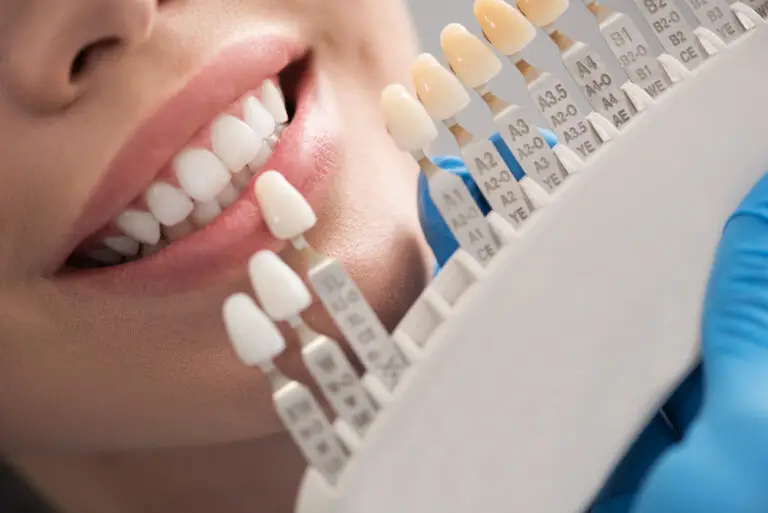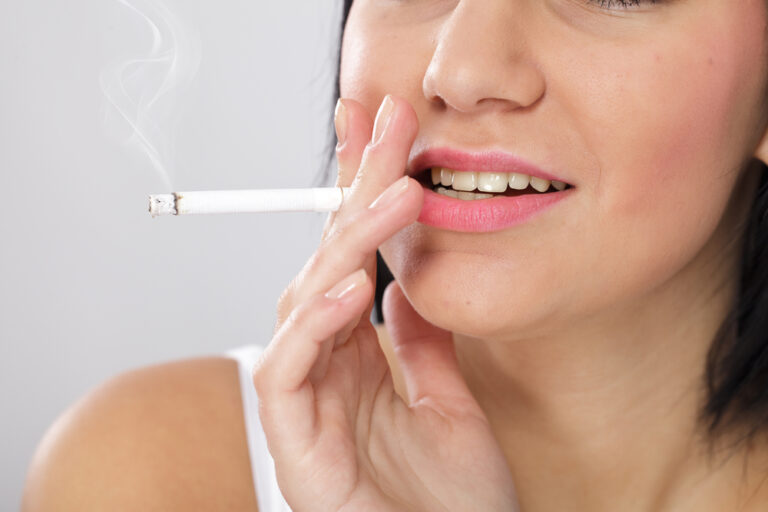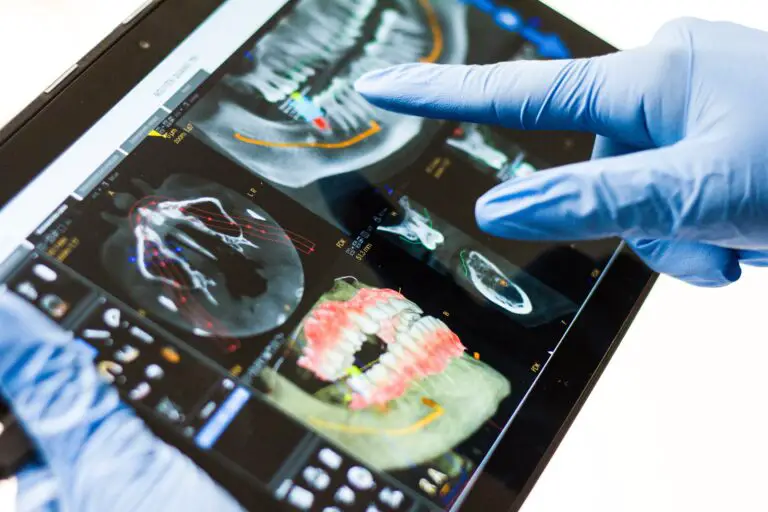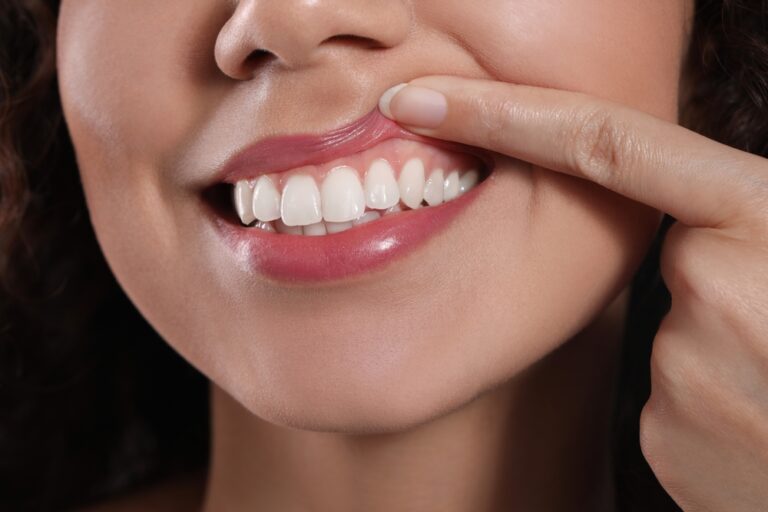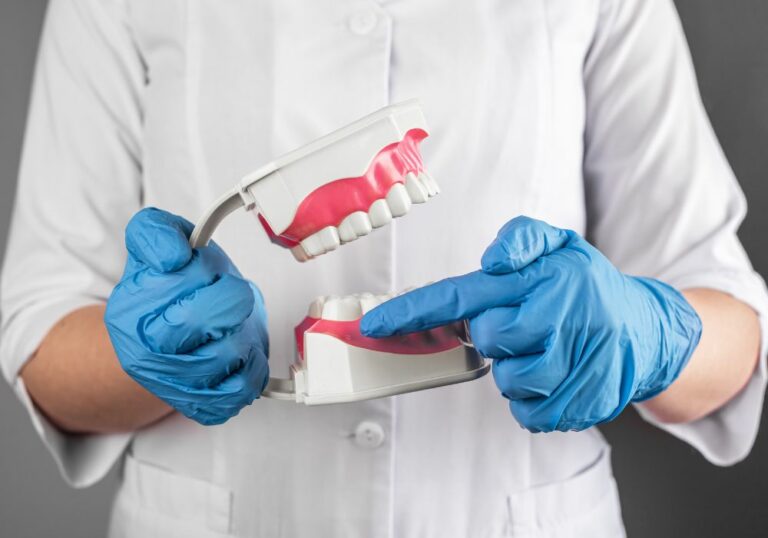Losing your teeth is often seen as a consequence of poor dental hygiene and tooth decay. However, some tooth loss is a natural part of the aging process. Understanding why teeth may fall out on their own, without decay or injury, can help you know whether losing a tooth requires prompt dental treatment.
Causes of Natural Tooth Loss
A number of factors contribute to teeth becoming loose and falling out as you get older, even with good oral care.
1. Periodontal Disease
One of the most common reasons teeth fall out naturally with age is periodontitis, or chronic infection and inflammation of the gums. Gum disease develops when plaque, a sticky film containing bacteria, builds up on teeth. The bacteria inflame the gums and generate toxins that create pockets around the teeth.
These pockets allow more bacteria to accumulate, which further stimulate the immune response. Immune cells release enzymes to break down infected gum tissue, causing gums to pull away from the teeth. With the gums detached, teeth lose the supporting foundation of bone and soft tissue anchoring them in place. Eventually, the lack of stability leads to tooth loss.
Warning signs of gum disease include red, swollen, tender gums that bleed easily when brushing or flossing. Loose teeth and chronic bad breath are also indicators of advanced gum infection.
2. Root Exposure
When gum recession occurs from any cause, the roots of teeth become uncovered and exposed in the mouth. Roots are normally protected below the gumline, where plaque and bacteria are easily removed by brushing and chewing.
Exposed roots provide rough surfaces that attract plaque. Root decay is more likely because roots contain less mineral and are softer than the top enamel portion of teeth. Root exposure also increases risk of tooth fracture and sensitivity to hot and cold.
As more root area becomes exposed, teeth loosen and fall out more easily due to lack of gum attachment and resultant instability.
3. Bone Loss
After permanent teeth form, some natural loss and remodeling of the jawbone occurs, even in the absence of gum disease. Bone gradually shrinks back around the teeth and becomes less dense. When there is less bony foundation supporting and anchoring the teeth, they may loosen and fall out.
Bone loss accelerates after about age 35 but increases markedly in post-menopausal women, partly due to estrogen deficiency. Osteoporosis and vitamin/mineral deficiencies also contribute to diminishing jawbone mass. Areas of bone damaged by infection and inflammation, like with gum disease, experience more rapid breakdown.
4. Changes to the Jawbones
Thinning of the maxilla and mandible, the upper and lower jawbones that contain the teeth sockets, can diminish the stability of teeth. When these jawbones lose mass and density due to aging or osteoporosis, teeth become looser in their sockets. Eventually, the teeth may fall out due to lack of bony support.
In addition, atrophy or shrinkage of the jawbones that occurs naturally over time means the teeth have less housing and start crowding or drifting together. When teeth drift, they may displace neighboring teeth, making them crooked or overlapped. The misalignment causes chewing forces to impact teeth abnormally, which weakens support and leads to tooth loss.
5. Dry Mouth & Decreased Saliva Flow
Saliva helps neutralize damaging acids in the mouth and rinse away food particles that bacteria use to produce more acid. Saliva also contains antibodies and minerals that have protective effects on tooth enamel.
With decreased saliva production, the environment in the mouth becomes more favorable to cavities and tooth decay. When decay undermines the tooth’s structural integrity, tooth fracture or loosening can lead to tooth loss. Older adults more commonly experience chronic dry mouth due to reduced salivary gland function, certain medications, or health conditions like diabetes.
Determining Excessive Tooth Loss
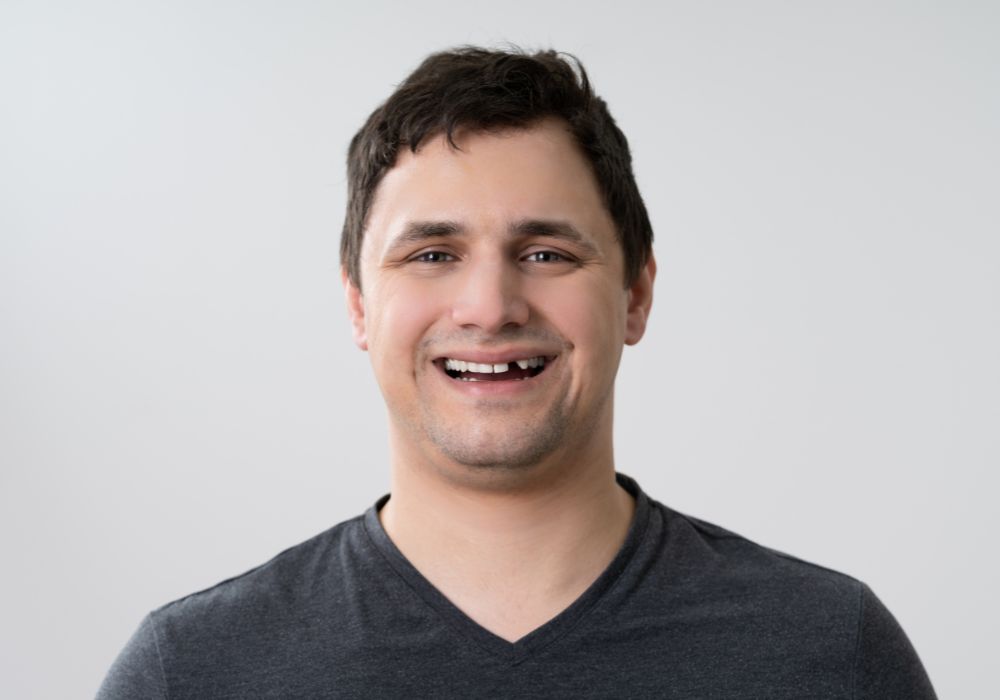
Losing a few permanent teeth as you age may be normal. But how much tooth loss is considered excessive and reason for concern?
Some guidelines include:
- Losing more than one permanent tooth per decade of life after age 35 can signal a problem requiring dental evaluation.
- Noticeable shifting or increased mobility of multiple teeth likely indicates issues like gum disease or bone loss.
- Difficulty chewing, speech changes, or altered facial appearance due to multiple missing teeth impacts oral function and health.
- If front teeth spaces are visible when smiling or gaps between teeth appear suddenly, this aesthetic change may merit dental examination to diagnose the cause.
This table summarizes the average expected tooth loss as you age. Use it to help determine if your own tooth loss seems excessive compared to the norms:
| Decade | Average Tooth Loss |
|---|---|
| 30s | 0 teeth |
| 40s | 1 tooth |
| 50s | 2 teeth |
| 60s | 3 teeth |
| 70s | 4 teeth |
| 80s | 5 teeth |
Remember these are only averages – some people may lose no teeth at all while others lose more. The location of tooth loss also matters. Your dentist can best assess if your rate of tooth loss is worrisome based on your oral health status and other risk factors.
Risk Factors for Excessive Tooth Loss
Some habits, health conditions, and medications increase susceptibility to losing teeth prematurely:
- Poor oral hygiene – Inadequate brushing and flossing allows dental plaque to build up and leads to decay and periodontal disease, which undermine tooth support.
- Tobacco use – Smoking or chewing tobacco is strongly associated with increased gum disease and tooth loss. One study found smokers are up to seven times more likely to lose teeth than non-smokers.
- Grinding or clenching teeth – Constant pressure and friction can crack teeth, damage joints, and alter alignment in ways that loosen teeth.
- Diabetes – Poor glycemic control contributes to gum infections and slower healing that can cause tooth loss.
- Osteoporosis – Low bone mineral density increases bone loss in the jaw and throughout the skeleton, including alveolar bone around the teeth.
- Certain medications – Drugs that cause dry mouth, like decongestants or blood pressure medications, reduce protective saliva flow and raise decay risk.
- Eating disorders – Conditions like bulimia that involve frequent vomiting erode tooth enamel from stomach acid exposure and lead to cavities.
- Cancer treatment – Chemotherapy and radiation can impair saliva production and the body’s ability to heal, increasing tooth loss risk.
Understanding your risks allows you to take steps to prevent excessive tooth loss before it occurs. Proper dental care, habits, and health can help maintain your natural teeth for a lifetime.
Preventing Age-Related Tooth Loss
While some teeth may naturally fall out with age, many losses can be prevented with proactive oral health care throughout life:
- Brush teeth thoroughly twice daily – Regular brushing removes decay-causing dental plaque from tooth and root surfaces. Use proper technique and a soft-bristled brush.
- Floss at least once daily – Flossing cleans between the teeth andbelow the gumline where plaque readily builds up. It prevents periodontal pockets that lead to loose teeth.
- Professional cleanings – Get dental cleanings and checkups every 6 months to catch problems early and remove hardened calculus deposits you can’t remove at home.
- Treat gum disease – If diagnosed with gingivitis or periodontitis, follow prescribed professional care and oral hygiene to resolve the infection and save teeth.
- Don’t smoke – Avoid all tobacco products to prevent the multiple negative impacts on oral health, including gum disease that progresses faster than in non-smokers.
- Eat a balanced diet – Eat fruits, vegetables, whole grains, dairy, proteins to get the vitamins and minerals needed for healthy gums and teeth. Vitamin C and calcium are especially important.
- Use dentures or implants to replace teeth – Replacing missing teeth prevents remaining teeth from shifting and restores chewing function. Implants help slow bone loss after extractions.
With diligent daily home care and regular professional cleanings and exams, keeping your natural teeth for life is an achievable goal for most people.
Visiting the Dentist for Tooth Loss Issues
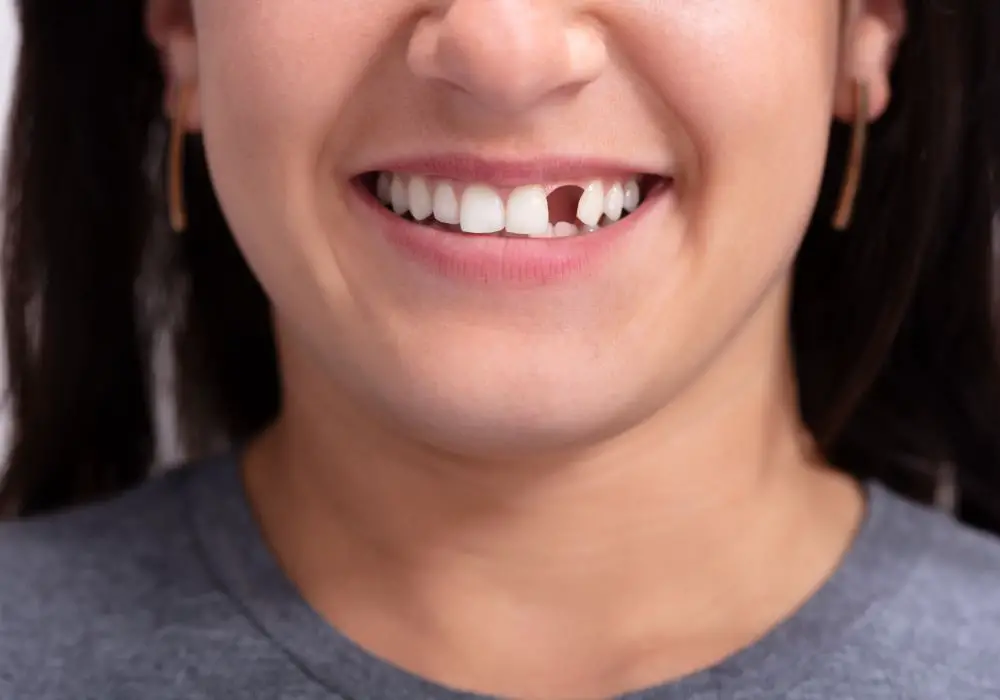
Seeing your dentist promptly is recommended if you experience any of the following tooth loss signs:
- Sudden loss of a permanent tooth – This requires immediate evaluation to determine the cause, which may impact treatment options if the tooth can be replanted.
- Increased looseness of multiple teeth – This likely indicates a problem like gum disease, bone loss, or cracked tooth roots that needs treatment.
- Difficulty chewing – Missing teeth can prevent proper chewing and require replacement to restore function. The dentist can discuss options like partials, bridges or implants.
- New gaps visible between teeth – This aesthetic change may upset you and indicates problems like bone loss. Treatment can prevent further loss and replace missing teeth.
- Tooth fracture or crack with pain – This often necessitates extraction of the damaged tooth and replacement to restore chewing ability and prevent tooth migration.
- Injuries causing tooth damage – Knocked-out, fractured or avulsed teeth require urgent dental treatment for the best prognosis. Lost teeth may be able to be replanted.
Seeing your dentist quickly when issues arise can help minimize tooth loss and preserve your oral health and function. Prompt care is key to optimal outcomes.
Frequently Asked Questions
Can teeth become loose and fall out due to gum disease?
Yes, periodontal disease is a very common cause of teeth falling out. Chronic bacterial infection destroys supporting gum tissues and bone leading to loose teeth. Progression of gum disease causes teeth to detach as the gums recede down the roots until they eventually fall out.
Is it normal for permanent teeth to become loose as you age?
It is common for permanent teeth to loosen slightly with age as bone loss occurs and tissues become weaker. But any persistent or worsening looseness of permanent teeth should be examined by a dentist to diagnose the cause and prevent losing the teeth.
Do senior citizens normally lose some of their teeth?
Losing a few permanent teeth as a senior citizen is common. On average, older adults can expect to lose 1-2 teeth per decade after age 35 due to causes like gum disease, cavities, trauma, etc. But tooth loss is not inevitable with age if good oral care is practiced.
Can teeth fall out due to chronic stress?
While stress doesn’t directly cause tooth loss, chronic stress can contribute to unhealthy behaviors like smoking, alcohol use, teeth grinding, and poor hygiene that raise your risk for tooth loss over time. Managing stress is important for maintaining oral health.
What should I do if one of my teeth falls out suddenly?
If you lose an adult tooth suddenly due to unknown cause, injury, or accident, try to find the tooth. Rinse it gently without scrubbing. Place it in milk or saline solution if possible, then seek emergency dental care immediately for the best chance of saving the tooth.

